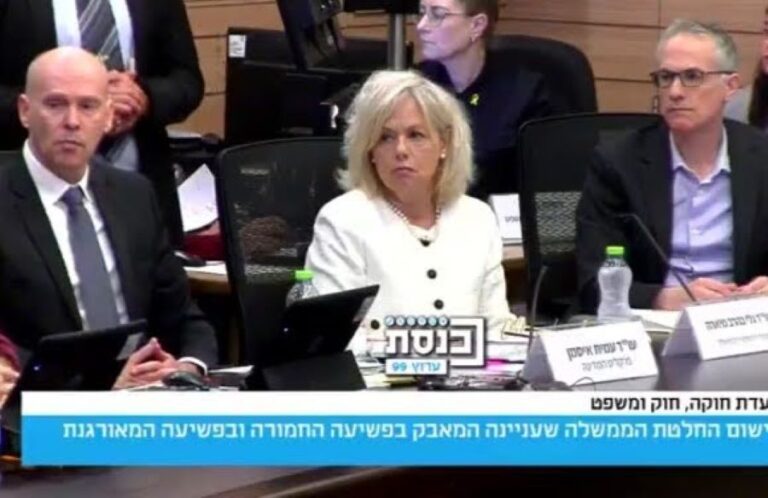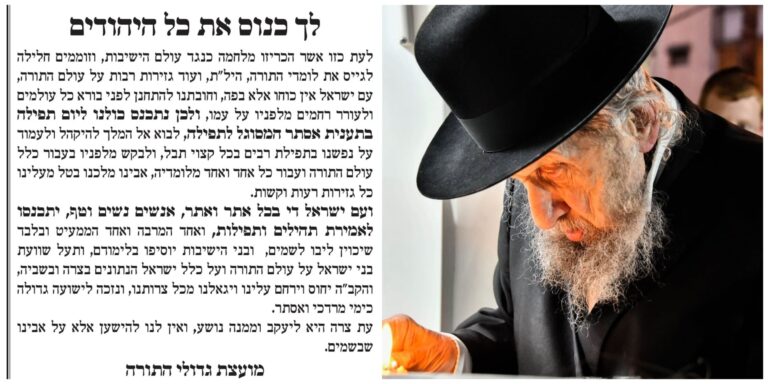‘And Esav said to Yaakov,”Pour into me, now, some of that very red stuff, for I am exhausted”;he was therefore named Edom.’ (25; 30)
One of the many highlights thisweeks parsha discusses, is the story of how Esav sold the rightsof the bechora to Yaakov, for a bowl of lentil soup. If you’llnotice, the above pasuk seems to end off with a very puzzling comment: ‘thereforethey called him Edom…’
The first thought that comes tomind is, just because Esav ate some red lentil soup is a reason for usto refer to him and ‘name him’ Edom (red)? Imagine someonewalking into a pizza shop, ordering pizza and we say ‘and now we shall callhim…pizza! At first glance, it doesn’t seem to make any sense.
Secondly, two pasukim later it says that Yaakovmade the deal with Esav and he sells him the rights to be the bechora.Rashi says that Esav sold it for a bowl of lentil soup. The pasukends and says, ‘…and he ate and drank, and he got up and left; and Esavembarrassed the bechora.’ (25;34)
The seemingly puzzling question is how exactly did Esav‘embarrass’ the bechora? We see later on, in the parsha, when Esavrealizes that Yaakov stole the berachos from him, he was upset.It must be that he knew the value of the bechora, but right now he wasvery hungry so he sold it for a bowl of soup. Sometimes a person does anirrational thing due to hunger. This should be no different. Usually the termembarrassed means that the person doesn’t understand the value of something.But he must have known the value of the bechora or he would’ve notgotten so upset at Yaakov, later on, for stealing the berachos.So what exactly do we mean by saying that Esav ’embarrassed’ the bechora?
Ramban says that the reason the Torah tellsus that he ate, drank, got up and left is because after he ate everything hewent right back into field to hunt; he went right back where he came from. The loshonthe Ramban uses is ‘Because fools have no other will other than eat,drink and fulfill their desires immediately.’ They’re not concerned withtomorrow. They don’t think about the future’.
Explains the Ramban that this is how Esav embarrassed the bechora.Right after he ate and drank he went back to concerning himself with hispleasures and enjoyment with no regard for tomorrow. The very fact that he canoccupy himself constantly with physical enjoyment and pleasure was howhe was mevaza the bechora.
What the Ramban is telling us is that a person has to have the abilityto see beyond what’s in front of him. Every time a person has a nisayon-beit with money, arayos, or whatever it may be-right now it looks like thegreatest pleasure in the world. One does not see what the repercussions are orwhere these actions may take him. Such a person will never be able to overcomeanything and is considered a fool. A fool only sees what’s directly in front ofhim.
The essence of the bechora-at that point-didn’treally have much of a value. Perhaps he understood the future value of it-forthe avodah-but not its value for that moment. When Esav comes inand he sees Yaakov cooking he couldn’t even see beyond the color of thefood! The first thing that caught his eye was red! He didn’t even bother tolook beyond the superficial element of food; the color! Therefore, we call him Edom.He couldn’t see what was beyond directly in front of him.
Part of being a chacham is being able to seebeyond what’s in front of you. As the mishna in Avos clearlystates, ‘who is a wise man? One who can see ahead (the future).’ Itdoesn’t mean someone who has ruach hakodesh. It means anyone whohas the ability to see beyond what’s directly in front of him is considered awise man; for it is those people who clearly understand the value of themoment.
We should all merit having the title of a chachamand be able to see past our immediate future.
HAVE A GREAT SHABBOS










